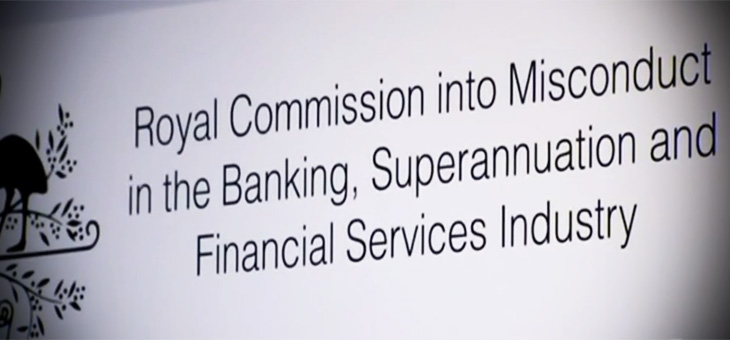The royal commission report into banking and financial services has been labelled everything from a success to an unmitigated flop, with many questioning its efficacy and whether it will do much to clean up the sector.
One of the biggest criticisms was the lack of ‘naming and shaming’ of those who committed white collar crimes, with victims in particular saying the recommendations didn’t go far enough and many wanting to see criminal proceedings immediately set in motion.
“We are disappointed that some recommendations did not go far enough, such as improving remedies for breaches of responsible lending law and banning junk products,” said Financial Rights Legal Centre chief executive Karen Cox.
However, the institution that most had its name dragged through the mud, NAB, has offered up the first two ‘sacrifices’.
Yes, the first major scalps of the banking royal commission’s final report have been claimed, after NAB chief executive Andrew Thorburn and chair Ken Henry confirmed on Thursday that they will both resign.
“I acknowledge that the bank has sustained damage as a result of its past practices and comments in the royal commission’s final report about them,” said now former NAB chief Andrew Thorburn.
“AS CEO, I understand accountability.”
Speaking to the media after the announcement, former chair Dr Ken Henry said he’s also “had to reflect in recent times overwhelmingly on our inability to meet community and customer expectations”.
The resignations come in the wake of commissioner Kenneth Hayne’s scathing criticism of the bank’s practices, which he said stood apart from other lenders.
“More particularly, I was not persuaded that NAB is willing to accept the necessary responsibility for deciding, for itself, what is the right thing to do, and then having its staff act accordingly,” he wrote in his final report.
“Overall, my fear – that there may be a wide gap between the public face NAB seeks to show and what it does in practice – remains.”
While the aim of the report was to create widespread changes in the financial sector, beef up regulators, compensate victims, overhaul banking remuneration, end the unlawful and excessive fees, encourage reform and better protect vulnerable and disadvantaged customers, so far, the report has disappointed many.
But the NAB resignations may show that it is having an effect and that maybe we just need to wait a bit longer for more dirty laundry to be aired.
Critics say culpable individuals and banks should be criminally prosecuted and, with 24 cases of misconduct already being referred to the regulators, given time, some of Australia’s biggest banks could face criminal prosecution.
Mr Hayne says that senior banking executives are to blame for the misconduct.
“There can be no doubt that the primary responsibility for misconduct in the financial services industry lies with the entities concerned and those who managed and controlled those entities: their boards and senior management,” he said.
But let’s not forget that he’s put the onus to process these cases in the hands of the same regulators that have allowed this misbehaviour – nay crime – to proliferate for who knows how long.
The government has also agreed to act on all 76 of Mr Hayne’s recommendations, but again, this is the same government that denied the need for a royal commission in the first place – run by the same party that says taking a hard line against banks would undermine the economy.
“It will be a question of what suggestions or measures they put on the table but I will be very mindful that I want to see the oil that lubricates our financial system – which is access to credit – continues to flow, otherwise the consequences would be quite significant,” Prime Minister Scott Morrison told The Sydney Morning Herald.
Since then, Mr Morrison has gone AWOL.
So, can we really expect sufficient action to take place? The NAB bosses effectively stood down, but will further grandstanding by the government, ASIC and APRA be enough to create real change in the financial sector? Or are criminal proceedings necessary to make a dent in the dark culture of banks and other institutions?
And will the victims of these crimes see any compensation as a result?
We’ll see.
In the meantime, we’d like to know if you think the banking royal commission report went far enough to make real change.
And, of course, we welcome your opinions in the comments section below.

